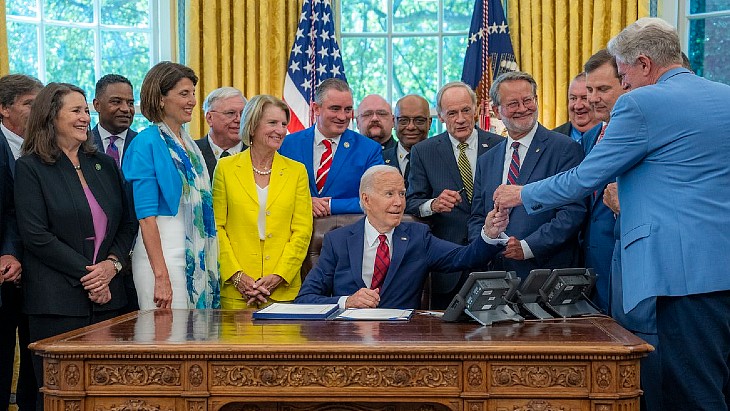Swedish regulator makes significant progress, says IAEA
Sweden has made "significant improvements in its regulatory framework for nuclear and radiation safety", an International Atomic Energy Agency (IAEA) peer review mission has concluded. However, it warned of potential new challenges ahead.
The IAEA Integrated Regulatory Review Service (IRRS) team concluded a nine-day mission to Sweden today. The team were making a follow-up mission, reviewing developments since a previous mission in 2012. The nine-member team comprised experts from the nuclear regulatory bodies of Finland, Ireland, Mexico, the Netherlands, Pakistan, Switzerland, the UK and the USA, as well as three IAEA experts.
"The IRRS team noted that the recommendations and suggestions from the 2012 mission have been considered systematically by the Swedish Radiation Safety Authority (SSM)," said team leader Georg Schwarz, deputy director general of the Swiss Federal Nuclear Safety Inspectorate. "Significant progress has been made in most areas - 20 out of 22 recommendations and all 17 suggestions identified in 2012 were closed."
The IAEA said, "The main areas of progress included improvements in SSM's inspection activities and in the preparedness for radiological emergencies, while maintaining sufficient knowledge and skills related to nuclear and radiation safety remained a challenge."
In its preliminary findings, the IRRS team identified good practices, including that the Swedish government and SSM have undertaken a comprehensive project to address the findings of the previous mission and to meet European Union nuclear safety directives and EU Basic Safety Standards. The team also praised SSM for developing a well-defined set of criteria to assess the risks involved in the multiple uses of radiation sources.
The team also made a number of suggestions for improvements. It said the SSM should complete a comprehensive assessment of its resource needs and should consider making regulatory guidance documents more accessible. It also suggested the government should consider expanding the scope of the national nuclear emergency response plan to include radiological emergencies based on a thorough hazard assessment.
However, the IAEA noted SSM faces possible new challenges since its 2012 review. It said these were mainly due to lower electricity prices and a change in national energy policy which could result in the earlier than planned closure of power reactors. The team said SSM needs to prepare for possible large-scale decommissioning and "ensure that economic pressure on the utility industry does not affect nuclear safety negatively".
SSM director general Mats Persson said, "First and foremost, the peer review has demonstrated that the Swedish system for nuclear safety and radiation protection is solid and well-developed. The results show that the authority has worked systematically on rectifying the inadequacies identified in 2012."
He added, "The IRRS report will serve as valuable input for our work. This will be a platform for our development work going forward."
SSM said it will draw up "an action plan for its development work going forward" based on the recommendations from the IRRS team.
The IAEA team will submit its final mission report to the Swedish government in about two months.
The IAEA offers the IRRS as a peer review service to strengthen and enhance the effectiveness of national nuclear regulatory infrastructures whilst recognizing the ultimate responsibility of each state to ensure safety in these areas. An IRRS mission is preceded by a pre-mission phase including a self-assessment by the regulator under review. A follow-up mission allows the host country and IRRS review team to assess progress in implementing any recommendations and suggestions, as well as providing an opportunity to identify additional technical and policy issues for review, to identify further good practices and provide input for the review of IAEA safety standards.
Sweden has ten operating nuclear power reactors at three sites: Forsmark, Oskarshamn and Ringhals. These units provide about one-third of the country's electricity. There are also three reactors currently being decommissioned in Sweden. Westinghouse operates at fuel fabrication plant at Västerås. The country also has an interim used fuel storage facility as well as a centre for waste treatment, storage and material investigation.
Researched and written
by World Nuclear News










_88592.jpg)

